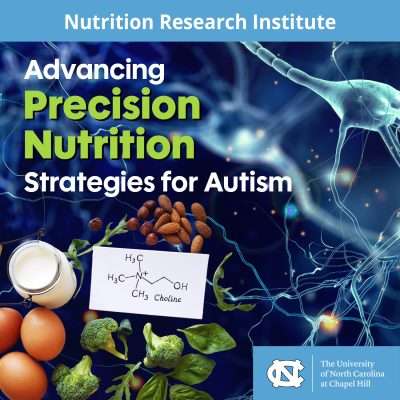Microbiome and Nutrition
The complex community of bacteria, yeasts and viruses living in our intestines, collectively known as the gut microbiome, is shaped, in part, by what we eat. Genetics, environment, and other factors also influence an individual’s microbial community. Research at the NRI investigates these complex relationships and their impact on disease risk. We use animal models and bioinformatics to study the associations between nutritional metabolites, gut microbiome, and health. What happens in the gut doesn’t stay in the gut. Your microbiome can play a role in cardiovascular disease, obesity and diabetes, and even cancer. Our team envisions a future where analysis of your microbiome can determine disease risk, and medical foods can be prescribed to treat and prevent disease by regulating the microbiome.
Publications
Microbiome and Nutrition Publications
2020
Population studies of TMAO and its precursors may help elucidate mechanisms. Meyer K
2019
Association of dietary patterns with the gut microbiota in older, community-dwelling men. Meyer K
2018
Meta-analysis of human genome-microbiome association studies: the MiBioGen consortium initiative. Meyer K
Human microbiota, blood group antigens, and disease. Sumner S
2017
Trimethylamine N-Oxide, the Microbiome, and Heart and Kidney Disease. Zeisel S
2016
Diet and Gut Microbial Function in Metabolic and Cardiovascular Disease Risk. Meyer K
Antibiotic-mediated gut microbiome perturbation accelerates development of type 1 diabetes in mice. Sumner S
Related News
STEM Night at the Ballpark Returns April 7
The UNC Nutrition Research Institute (NRI) is proud to recognize an important milestone in the career of Blake Rushing, PhD, Assistant Professor of Nutrition. Rushing now leads his own research program, marking the beginning of a new chapter in his work at the NRI. His laboratory focuses on understanding how nutrient metabolism shapes cancer development and treatment response.
Advancing Precision Nutrition Strategies for Autism
The UNC Nutrition Research Institute (NRI) is proud to recognize an important milestone in the career of Blake Rushing, PhD, Assistant Professor of Nutrition. Rushing now leads his own research program, marking the beginning of a new chapter in his work at the NRI. His laboratory focuses on understanding how nutrient metabolism shapes cancer development and treatment response.
2026 STEM Night Volunteers
Please review the available slots below and sign up for your desired activity. You can sign up for multiple time slots. We need representatives from each institution available to speak at the partner(s) table. Training will be provided for all hands-on activity...
Free event – Nutrition Myths: Fact or Fake?
Free event - Nutrition Myths: Fact or Fake?Katie Meyer, ScD, is a nutritional and cardiovascular disease epidemiologist. Her research focuses on diet-related health behaviors and nutritional risk factors for cardiometabolic disease. She is a recent recipient of a...
When Biology, Not Willpower, Predicts Weight Loss
The UNC Nutrition Research Institute (NRI) is proud to recognize an important milestone in the career of Blake Rushing, PhD, Assistant Professor of Nutrition. Rushing now leads his own research program, marking the beginning of a new chapter in his work at the NRI. His laboratory focuses on understanding how nutrient metabolism shapes cancer development and treatment response.






